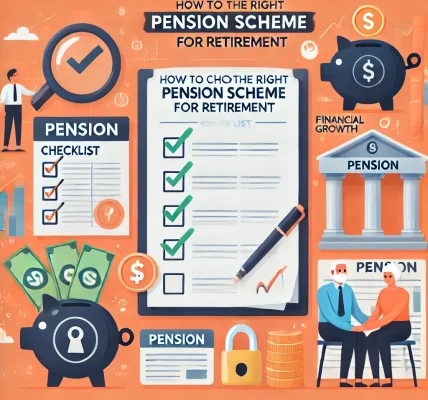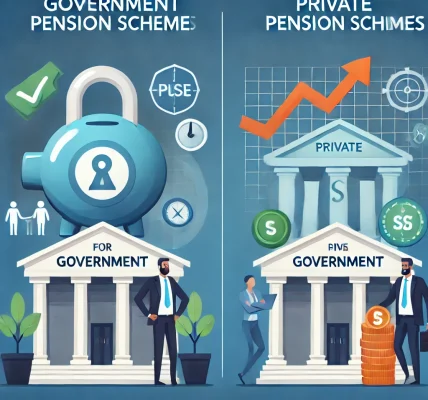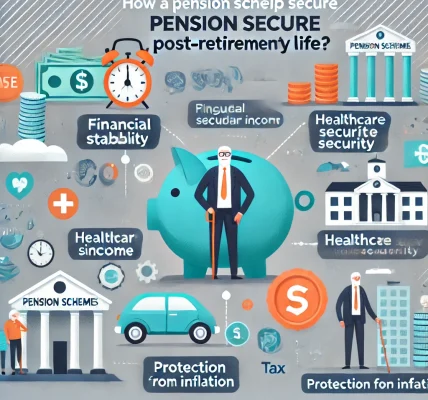Introduction
Financial emergencies can arise at any stage of life, and pensioners are no exception. Whether it is a medical emergency, home repairs, or any unforeseen expenditure, pensioners often require financial assistance beyond their regular pension income. To address such needs, various government and private financial institutions offer emergency loan facilities for pensioners.
In this guide, we will explore the emergency loan options available for pensioners, their benefits, eligibility criteria, application process, and tips to get approved quickly.
1. What is an Emergency Loan for Pensioners?
An emergency loan for pensioners is a short-term financial assistance scheme specifically designed to help retired individuals meet urgent expenses. These loans usually come with minimal documentation, flexible repayment options, and reasonable interest rates.
Key Features:
- Quick approval process
- Lower interest rates than personal loans
- Special benefits for government and military pensioners
- No need for a high credit score in some cases
- Can be used for medical emergencies, home repairs, travel, etc.
2. Types of Emergency Loans Available for Pensioners
a) Government-Sponsored Pension Loans
Some government schemes offer financial aid to pensioners in times of need. These loans are provided at subsidized rates and are easier to access for pensioners who receive government pensions.
Example Schemes:
- Pension Loan Scheme (PLS) by SBI: Designed for Central and State Government pensioners, defense pensioners, and family pensioners.
- Atal Pension Yojana (APY) Advances: Although APY is a pension scheme, it allows partial withdrawals in emergencies.
b) Bank Loans for Pensioners
Many banks, including SBI, PNB, and HDFC, offer personal loans tailored for pensioners.
Features:
- Loan amounts ranging from ₹25,000 to ₹14 lakhs (varies by bank)
- Repayment tenure of up to 7 years
- Competitive interest rates starting from 9%
c) NBFC and Private Loans
Non-Banking Financial Companies (NBFCs) and private lenders also offer emergency loans for pensioners. These loans usually have a quick approval process but may carry higher interest rates.
d) Gold Loans for Pensioners
Pensioners can avail of loans against gold jewelry as a quick solution for financial emergencies.
e) Reverse Mortgage Loans
A reverse mortgage loan allows senior citizens to borrow against their property while continuing to live in it. The bank provides monthly payouts, making it an excellent option for financial security.
3. Eligibility Criteria for Pensioner Emergency Loans
While eligibility requirements vary by lender, the general criteria include:
- The applicant must be a retired individual receiving a regular pension
- Age limit: Typically between 58 to 75 years (varies by bank)
- Must have a pension account with the lending bank (for government pensioners)
- Some lenders may require a minimum pension amount (e.g., ₹15,000 per month)
- For unsecured loans, a co-applicant (such as a spouse or child) may be required
4. Required Documents for Loan Application
To apply for an emergency loan, pensioners generally need to submit the following documents:
- Identity Proof: Aadhaar Card, PAN Card, or Voter ID
- Address Proof: Utility bills, Aadhaar Card, or passport
- Pension Proof: Pension payment order (PPO), pension slips, or bank statements
- Income Proof: Latest bank statements showing pension credits
- Photographs: Passport-sized photographs
- Loan Application Form: Duly filled application form from the respective bank or lender
5. How to Apply for an Emergency Loan as a Pensioner?
Step-by-Step Process:
Step 1: Research & Compare Loan Options
- Compare interest rates, tenure, and repayment options offered by different banks and financial institutions.
- Check for government-backed schemes if you are a government pensioner.
Step 2: Visit the Nearest Branch or Apply Online
- Many banks allow online applications for pension loans, making the process hassle-free.
- If applying offline, visit the bank branch and request a pension loan form.
Step 3: Submit the Required Documents
- Ensure you have all necessary documents (as listed above) ready for submission.
Step 4: Loan Processing & Verification
- The bank or lender will verify your pension details, credit history (if applicable), and loan eligibility.
Step 5: Loan Approval & Disbursement
- Once approved, the loan amount is credited to your bank account, often within 24-48 hours for emergency loans.
6. Tips for Quick Loan Approval
- Maintain a Healthy Bank Balance: Banks prefer pensioners with stable pension deposits.
- Choose Your Existing Bank: Applying for a loan from the bank where you receive your pension increases approval chances.
- Opt for Secured Loans if Needed: Loans against property or gold have higher chances of approval.
- Keep a Good Credit Score: Though not always mandatory, a decent CIBIL score can help in getting better interest rates.
- Apply for an Amount You Can Repay: Ensure your loan EMI does not exceed 40-50% of your monthly pension.
7. Pros and Cons of Emergency Loans for Pensioners
Pros:
✔ Quick access to funds in emergencies
✔ Lower interest rates compared to regular personal loans
✔ No need for a high credit score in many cases
✔ Flexible repayment options
Cons:
❌ Some loans require collateral (e.g., gold, property)
❌ Higher interest rates if applying with private lenders
❌ Processing fees and charges may apply
8. Alternative Financial Assistance Options
If an emergency loan is not suitable, pensioners can explore these alternatives:
- Government relief funds for senior citizens
- Medical insurance claims (for healthcare emergencies)
- Borrowing from family or friends (interest-free options)
- Selling non-essential assets (e.g., old investments, extra property)
Conclusion
Emergency loans for pensioners provide a much-needed financial cushion in times of crisis. Whether opting for a bank pension loan, government-backed scheme, or alternative financial solutions, pensioners should carefully evaluate their repayment capacity before borrowing.




